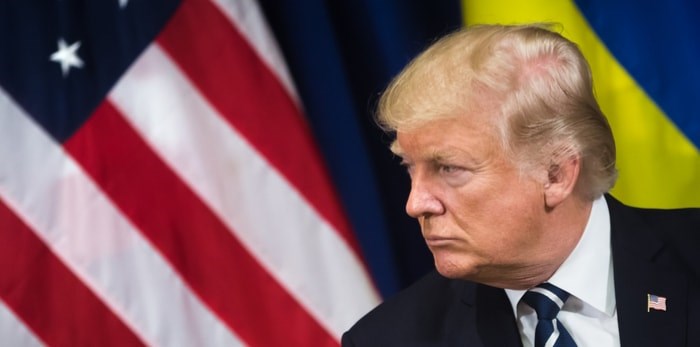 Donald Trump (Drop of Light / Shutterstock.com)
Donald Trump (Drop of Light / Shutterstock.com)
In past decades, the developments of the past week would have been enough to bring down sitting governments. In a span of hours, the campaign chairman of the current president of the United States was found guilty of fraud, and the president’s personal lawyer appeared to strike a deal with prosecutors. The situation does not look great for Donald Trump, but then again, none of the controversies that he has faced – including the infamous Access Hollywoodtape – changed the minds of his loyal base.
In 2015, when the notion of Trump becoming the 45th American president only provided fodder for late-night comedians, I asked Canadians whether having him as the dweller of the White House would be good or bad for our country. Aside from some pockets of support for a “straight shooter in Washington” – mostly located in Alberta and Ontario – most Canadians appeared dismayed at the very thought.
In British Columbia, the level of animosity towards a Trump presidency was always higher than anywhere else in Canada. Since Trump’s victory, there have been many opportunities for further disappointment, including the tense exchanges with Prime Minister Justin Trudeauand the on-again, off-again renegotiation of the North American Free Trade Agreement (NAFTA).
So, as the Trump administration begins its 19th month in office, let’s review if British Columbians are acting differently because of who is right now in the White House.
The first sign of change in the behaviour of British Columbians has to do with media. More than half of respondents to a recent Research Co.poll (52%) say they are paying more attention to American news than they did in years past. The proportion jumps to 64% among those aged 55 and over, who are more likely to get their news from television, foreign or domestic.
While American networks such as CNNmay be getting a larger audience, Canadian television news producers have also been more mindful of what is transpiring south of the border. It is still hard to explain the complexities of the legal cases surrounding Paul Manafortand Michael Cohenin a two-minute story, but the attention is definitely there.
Aside from watching the news, perhaps in the hopes of catching the moment when everything falls apart, British Columbians are also starting to “cast a ballot” in the Electoral College with their wallets.
Twenty-five per cent of British Columbians admit to changing a brand of food they usually bought to avoid buying from U.S. producers, a proportion that jumps to 31% for those aged 55 and over.
Nineteen per cent of British Columbians say they have changed a brand of clothing they usually bought to avoid buying from U.S. retailers.
If baby boomers were ahead of the curve on produce and condiments, millennials are leading the way on garments, with 25% abandoning U.S. clothing brands and retailers, a significantly higher proportion than their older counterparts.
Sixteen per cent of British Columbians say they cancelled a planned holiday or vacation to the United States. There are no significant shifts across gender or age demographics, but this should be a worrisome statistic for tourism operators in western American states who rely on British Columbia’s visitors, whether it’s a weekend in Seattle or a longer stay in California.
In a strange way, having a figure like Trump in the United States has done wonders for the news and information industry. More British Columbians are following what is happening in the United States, but fewer are buying U.S. products or planning to visit – at least for the time being. The lingering disputes about NAFTA are also making some residents more aware of what they buy and finding ways to “shun American.”
As the pending cases go through the American court system, discussions about impeachment progress and voters in the United States ponder their options in this November’s mid-term elections, it will be interesting to see how these stats change in British Columbia. I am not certain that we would have the same level of active avoidance of American products if a different person were living in the White House.
Oddly enough, it was the Democratic party that was usually decried as overly protective of markets and the Republican party that was more experienced and fair when it came to international trade. How things have changed.


